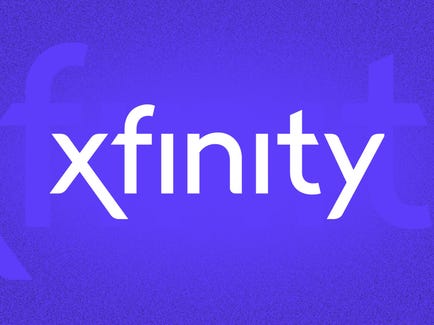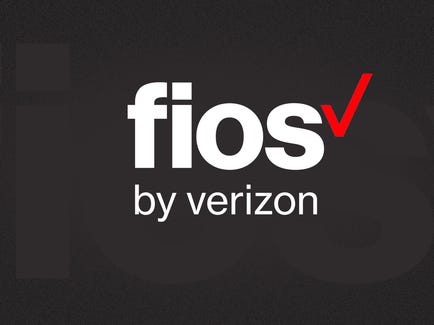Xfinity vs. Verizon Fios: Which Internet Provider Is Best?
Xfinity may be cheaper, but Verizon Fios is the better overall value. Here’s how home internet from Xfinity and Verizon Fios compares.


Is Verizon Fios or Xfinity better?
Verizon Fios and Xfinity have their unique advantages, but Verizon Fios is the better provider overall largely due to its 100% fiber network, straightforward pricing and promotional offers.
While the two providers advertise comparable download speeds, Verizon Fios can deliver symmetrical (or close) upload speeds and superior reliability over a fiber-optic connection. Verizon Fios plans also come with free equipment, unlimited data, no contract requirements and potentially longer price guarantees than Xfinity. The stable pricing and favorable service terms, not to mention the speed and reliability of a 100% fiber connection, have helped Verizon Fios land J.D. Power’s top spot for customer satisfaction in the East region for 11 consecutive years.
Xfinity is likely to offer more plans to choose from, including a few that are priced lower than the cheapest plan from Verizon Fios. You may also have a better selection of internet and TV bundles with Xfinity and a discount for each Xfinity service you add to the bundle.
Locating local internet providers
So, Xfinity is potentially cheaper, but Verizon Fios will be the better all-around service for most. Here’s everything you need to know to decide which provider, Verizon Fios or Xfinity, is best for your home.
Xfinity
Lots of plan options but price jumps after the promo period
Our take - Xfinity gives you more plan options than just about any other provider, with speed tiers ranging from 75Mbps to 10Gbps. While availability on the 10Gbps plan is highly limited (and comes with a hefty price tag of $300 per month), the standard gigabit plan is available in 99% of Xfinity service areas. It offers max download speeds of up to 1,200Mbps. However, since Xfinity uses a cable connection, upload speeds on all plans under 10Gbps won't match the fast download speeds, so expect upload speeds in the 10 to 200Mbps range.
Verizon Fios
Fast fiber speeds to go with strong customer satisfaction
Our take - Verizon Fios has fewer plan options than Xfinity, but each plan offers plenty of speed with 300Mbps, 500Mbps and gigabit speed tiers available. And since Verizon Fios employs a 100% fiber connection, customers can expect symmetrical or near-symmetrical upload and download speeds. Pricing is about the same as Xfinity for comparable speed tiers, but without the definite and potentially steep price increase after a promo period ends.
Verizon Fios vs. Xfinity: Plans and pricing
Both Verizon and Xfinity offer a variety of home internet plans, as well as bundles that package your home internet with other services like mobile or cable TV. You'll find a greater variety of options with Xfinity, which offers up twice as many plans as Verizon Fios in most locations. Here’s a look at those plans.
Locating local internet providers
Comcast Xfinity internet plans (Northeast region)
| Xfinity plan | Starting monthly price | Max download speeds | Max upload speeds | Equipment fee | Data cap | Contract |
|---|---|---|---|---|---|---|
| Connect More | $25 | 200Mbps | 10Mbps | $15 (optional) | 1.25TB | 1-2 years (optional) |
| Fast | $35 | 400Mbps | 10Mbps | $15 (optional) | 1.25TB | 1-2 years (optional) |
| Superfast | $60 | 800Mbps | 15Mbps | $15 (optional) | 1.25TB | 1-2 years (optional) |
| Gigabit | $70 | 1,000Mbps | 35Mbps | $15 (optional) | 1.25TB | 1-2 years (optional) |
| Gigabit Extra | $80 | 1,200Mbps | 35Mbps | $15 (optional) | 1.25TB | 1-2 years (optional) |
| Gigabit x2 | $100 | 2,000Mbps | 200Mbps | $15 (optional) | 1.25TB | 1-2 years (optional) |
Verizon Fios home internet plans
| Verizon Fios plan | Starting monthly price | Max download speeds | Max upload speeds | Equipment fee | Data cap | Contract |
|---|---|---|---|---|---|---|
| Fios 300 | $50 | 300Mbps | 300Mbps | None | None | None |
| Fios 500 | $70 | 500Mbps | 500Mbps | None | None | None |
| Fios Gig | $90 | 940Mbps | 880Mbps | None | None | None |
| Fios 2 Gig | $110 | 2,300Mbps | 2,300Mbps | None | None | None |
Fewer hassles and fees with Verizon Fios vs. Xfinity
Regardless of your location or the plan you choose, all Verizon Fios plans come with free equipment rental, unlimited data and no contract requirements. The plan you choose may, however, determine the length of your price guarantee and the signup bonus you get. The 300Mbps plan, for example, may come with a two-year price guarantee and a $50 gift card for signing up, whereas the gigabit plan could include a four-year price guarantee and higher gift card amount plus other incentives when you sign up.
Xfinity’s service terms and conditions are a bit more random. Depending on where you live and the plan you choose, Xfinity internet service may or may not include your equipment rental and/or unlimited data. Furthermore, a one or two-year contract may be required to get the lowest pricing. Unlike with Verizon Fios, I would count on having either an equipment fee ($15 if you choose to rent) or a data cap (1.25TB per month), and possibly a contract with Xfinity.
Both providers offer discounted rates for low-income households
With Verizon, the Fios Forward program lets qualified customers deduct $20 from the monthly cost of any Verizon Fios plan. That brings the cost of a 300Mbps fiber internet plan down to $30 per month, and the cost of a 940Mbps plan down to $70 per month.
With Comcast, low-income customers can sign up for the Internet Essentials plan, which offers speeds of 50Mbps for $10 per month. Xfinity also features an Internet Essentials Plus plan, which doubles the download speed to 100Mbps for $30 a month.
Verizon Fios vs. Xfinity availability and connection types
Verizon Fios coverage is concentrated in the Northeast, while Xfinity service is more widespread and available in several regions.
Xfinity is the nation’s largest cable internet provider, available to more than a third of US households coast to coast, according to the FCC. Availability is somewhat random and limited to urban areas in states where Xfinity offers service. In Texas, for example, you won’t find Xfinity much outside of the greater Houston area.
Verizon Fios has a more concentrated coverage area, sticking primarily to the Mid-Atlantic and Northeast regions. Service is available in metro and suburban areas from Virginia to Massachusetts and Upstate New York.
Major markets where Xfinity and Verizon Fios overlap
- Delaware
- New Jersey
- New York City
- Albany, New York
- Buffalo, New York
- Staten Island, New York
- Syracuse, New York
- Baltimore, Maryland
- Boston, Massachusetts
- Harrisburg, Pennsylvania
- Philadelphia, Pennsylvania
- Pittsburgh, Pennsylvania
- Providence, Rhode Island
- Norfolk, Virginia
- Richmond, Virginia
- Washington, DC
The connection type makes a difference
Comcast's Xfinity internet service specializes in cable internet, which carries your web traffic along the same copper coaxial wiring that delivers cable TV into people's homes. That's no surprise -- along with being an internet juggernaut, Comcast is one of the biggest cable TV providers in the US.
Cable internet doesn't have the same speed potential as fiber internet, especially when it comes to download speeds, but it's still quite capable of delivering a high-speed connection. Xfinity offers max download speeds of 1,200 or 2,000Mbps in most locations, with accompanying max upload speeds of 35 or 200Mbps.
Such speeds are faster than you’ll find from most cable internet providers, but they still fall short of Verizon Fios. The fiber internet provider offers symmetrical speeds (upload and download) of up to 2,300Mbps in select locations. In areas where the 2,300Mbps plan is unavailable, Verizon Fios advertises max speeds of 940Mbps down and 880Mbps up. While the download speeds are slightly slower than Xfinity’s max speeds, the faster upload speeds and reliability of a 100% fiber-optic connection make Verizon Fios the better choice for gig service.
How much internet speed do I really need?
General internet activities, such as streaming TV or gaming online require slower speeds than you might think. Streaming in HD or 4K, for example, typically requires download speeds around 50Mbps while online gaming is possible with 10Mbps or less.
So a 50Mbps plan, or perhaps Xfinity’s cheap 75Mbps plan, should handle all your needs, right? Not exactly. A plan's advertised speeds are rarely the speeds you will see inside the home to a connected device such as a streaming stick or gaming console.
Using a Wi-Fi connection and connecting multiple devices to your network -- smart TVs, laptops, phones, consoles, security cameras and smart speakers add up quick -- can slow your speeds. Therefore it’s best to choose a plan with ample speed for all your devices. If you plan to stream TV on multiple screens at once, speeds of at least 100Mbps are recommended. For heavier internet activity and households with multiple users, faster speeds will provide a better experience.
Verizon Fios boasts higher customer satisfaction ratings
Something else worth considering if you're comparing Xfinity and Verizon Fios is how happy their existing customers are with the services. It's a metric that the American Customer Satisfaction Index and J.D. Power track with yearly surveys and reports, including a regular look at the top telecom providers.
Verizon’s ACSI score increased in 2023 from 71/100 to 75, but it fell below a few providers for the first time in years, with AT&T Fiber, Quantum Fiber and Google Fiber earning higher scores. Still, Verizon Fios fared better than Xfinity’s fiber service (73) and cable service (68), which makes up the vast majority of Xfinity’s network.
J.D. Power ranked Verizon Fios as the top provider for customer satisfaction in the East region in 2023 with a score of 760/1,000. Xfinity came in at 698, below fellow cable provider Cox (706) and the regional average (709).
Recap: Xfinity vs. Verizon Fios
Xfinity has greater availability than Verizon Fios and potentially lower introductory pricing, but Verizon Fios presents the best value. Though priced slightly higher than Xfinity on comparable speeds, Verizon Fios offers symmetrical upload and download speeds, unlimited data, free equipment rental and no contracts -- perks that aren’t all available from Xfinity. Verizon Fios also has a better customer satisfaction record than Xfinity from both the ACSI and J.D. Power.
Verizon Fios vs. Xfinity FAQs
What are the main differences between Xfinity and Verizon Fios?
Speeds, pricing and service terms separate Xfinity and Verizon Fios. Whereas Xfinity primarily uses a cable internet network with limited speed potential, Verizon Fios employs a 100% fiber-optic network that can deliver significantly faster upload speeds and better speeds reliability.
As for pricing and service terms, Xfinity typically has lower introductory rates, though service may come with equipment fees, data caps and a contract. Verizon Fios is contract-free and includes equipment rental and unlimited data at no extra cost.
Is Xfinity or Verizon Fios cheaper?
Xfinity internet service starts at $20 to $30 per month in most locations for max download speeds of 75 or 200Mbps. That’s significantly less than the cheapest plan from Verizon Fios, which starts at $50 per month (though with faster speeds, up to 300Mbps). Other Xfinity plans are priced lower than comparative plans from Verizon Fios. Gig service from Xfinity starts at $60 monthly in many locations whereas similar download speeds from Verizon Fios start at $90.
It’s worth noting, however, that renting equipment from Xfinity may add $15 to your monthly bill. Additionally, Xfinity introductory rates expire after one to three years, after which your rate may increase by as much as $30 or more depending on the plan you choose. Verizon Fios does not have set price increases and your price guarantee may be longer than Xfinity’s, up to four years.
Is cable better than Fios?
Fiber-optic internet, like that of Verizon Fios, is almost always preferable to cable internet service such as Xfinity. Max download and upload speeds are typically faster with fiber internet compared to cable. Verizon Fios has symmetrical max speeds of 2,300Mbps. Xfinity, while one of the faster cable internet providers, offers max speeds of 2,000Mbps down and 200Mbps up in select areas.
Are there other internet service providers that I should consider?
If Verizon Fios and Xfinity are available in your area, it’s possible that other providers and connection types are options, as well. Verizon offers a fixed wireless home internet service, with download speeds of 50 to 300Mbps or 85 to 1,000Mbps depending on your location and the plan you choose. Additional potential fixed wireless internet options include T-Mobile Home Internet, Starry Internet and US Cellular, among others.
Home Internet Guides
- Sometimes a provider is available in your Zip code, but not at your exact address
- See what exact plans are available at your home




